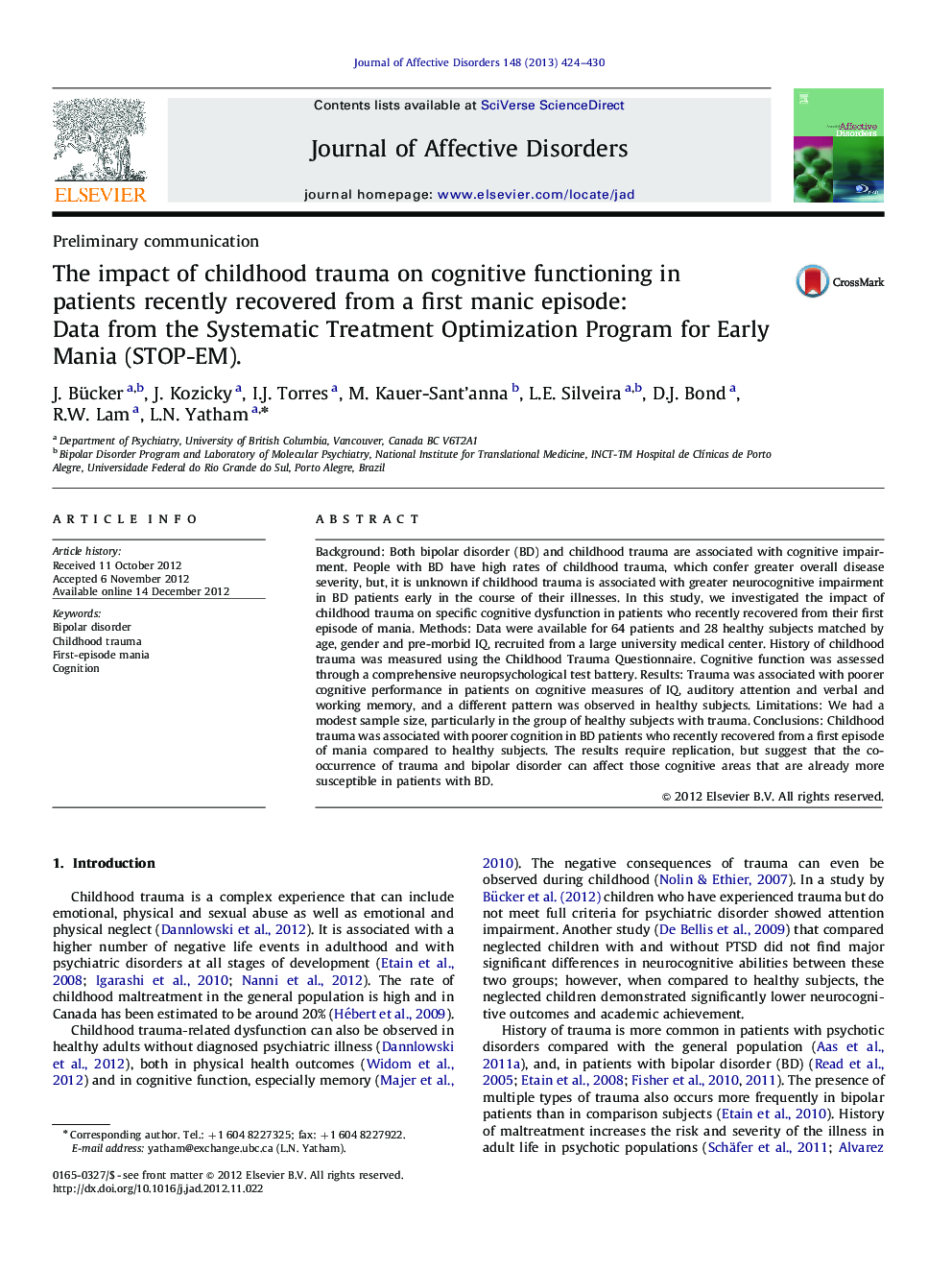| Article ID | Journal | Published Year | Pages | File Type |
|---|---|---|---|---|
| 6234494 | Journal of Affective Disorders | 2013 | 7 Pages |
Background: Both bipolar disorder (BD) and childhood trauma are associated with cognitive impairment. People with BD have high rates of childhood trauma, which confer greater overall disease severity, but, it is unknown if childhood trauma is associated with greater neurocognitive impairment in BD patients early in the course of their illnesses. In this study, we investigated the impact of childhood trauma on specific cognitive dysfunction in patients who recently recovered from their first episode of mania. Methods: Data were available for 64 patients and 28 healthy subjects matched by age, gender and pre-morbid IQ, recruited from a large university medical center. History of childhood trauma was measured using the Childhood Trauma Questionnaire. Cognitive function was assessed through a comprehensive neuropsychological test battery. Results: Trauma was associated with poorer cognitive performance in patients on cognitive measures of IQ, auditory attention and verbal and working memory, and a different pattern was observed in healthy subjects. Limitations: We had a modest sample size, particularly in the group of healthy subjects with trauma. Conclusions: Childhood trauma was associated with poorer cognition in BD patients who recently recovered from a first episode of mania compared to healthy subjects. The results require replication, but suggest that the co-occurrence of trauma and bipolar disorder can affect those cognitive areas that are already more susceptible in patients with BD.
